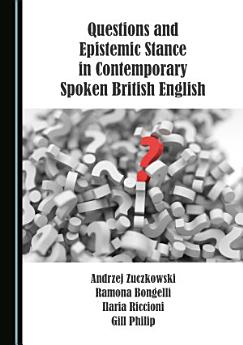Questions and Epistemic Stance in Contemporary Spoken British English
About this ebook
In the epistemic continuum, Unknowing questions express a lack of knowledge and range from open to closed and dual wh-questions. On the other hand, Uncertain questions express a lack of certainty and range from maximum uncertainty (Not Knowing Whether-questions advancing a doubt) to minimum uncertainty (Believing-questions advancing a supposition). Both Unknowing and Uncertain questions can be directed either at the answerer’s Knowing or Believing position, depending on their aim.
The volume will appeal to scholars concerned with the topic of question design and epistemic stance from a theoretical and analytical perspective, as well as those interested in applying these findings in their teaching practice.
About the author
Ramona Bongelli is Assistant Professor in General Psychology at the Department of Political Sciences, Communication and International Relations of the University of Macerata, Italy. Her main scientific interests concern the pragma-linguistic aspects of communication, discourse and conversation analysis, and scientific writing.
Ilaria Riccioni is Assistant Professor in General Psychology at the Department of Education, Cultural Heritage and Tourism of the University of Macerata, Italy. She is interested in the pragma-linguistic and relational dimensions of talk in interaction, discourse analysis, and scientific writing.
Gill Philip is Associate Professor in English Language and Translation at the Department of Humanities of the University of Macerata, Italy. A corpus linguist, her main research interests straddle the interface between cognition and linguistic communication, particularly in phraseology and figurative language.







